Implementing effective systems and processes is crucial for any business seeking improved productivity, efficiency and performance. My guest today, James Brown, brings over 20 years of expertise in this area.
In 2018, James founded BizTech Guru, a consulting firm focused on assisting business owners in achieving greater time freedom and success. He draws heavily on his knowledge of SYSTEMology, a methodology for systematizing and streamlining business operations we covered in episode 408 with its founder, Dave Jenyns. Having partnered with SYSTEMology to run their training programs, James has helped hundreds refine this powerful approach.
With his extensive background and understanding of business challenges, James offers clients innovative solutions to simplify their operations and maximize team ownership. In this illuminating discussion, James stresses optimizing systems over time through an iterative approach, building team ownership slowly versus rapid optimization. We discuss mindset shifts for business owners regarding financials, retirement goals, and resilience. James also shares anecdotes on adapting management strategies to suit individual team members’ learning styles for success.
This episode is packed with actionable insights from a seasoned expert on driving productivity through business systems, which will optimize your marketing department.
Without any further ado, let’s get on with the show!
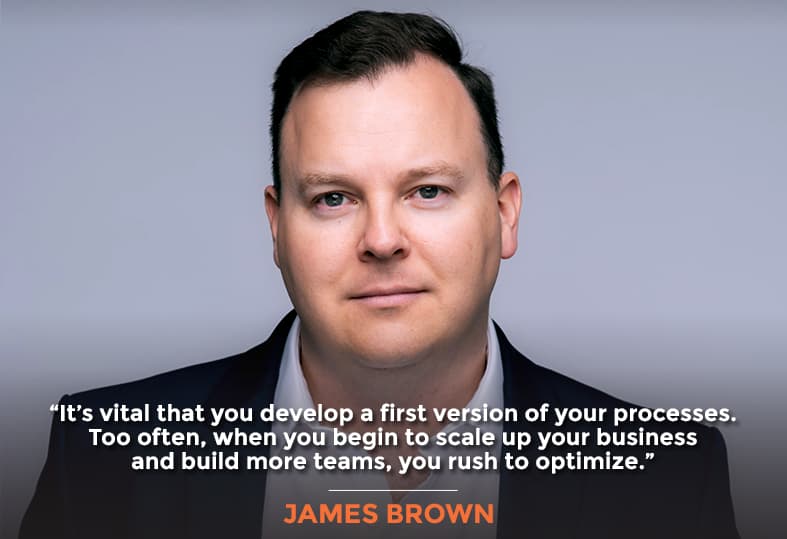
In This Episode
- [02:08] James Brown shares how he was led to explore SYSTEMology to simplify business operations.
- [06:30] James describes his leadership style and reflects on some books that helped him improve his business leadership and systemization.
- [10:58] James shares his experience with regression before improvement.
- [15:06] James highlights the importance of developing a version one of the processes in business rather than constantly optimizing.
- [19:05] James discusses the importance of financial control in business, mentioning Profit First and SYSTEMology as helpful frameworks.
- [24:18] James simplified the growth mindset concept into a triangle consisting of focus, physiology, and language.
- [33:07] Stephan and James discuss personal growth, leadership, and team management.
- [41:55] James values hiring for attributes over experience, citing the importance of finding the right fit for the team.
- [45:53] James shares his experience of going through a crisis and how it has helped him develop a new level of resilience.
James, it’s so great to have you on the show.
Great. Thanks for having me.
Let’s talk about how you got started. How did you end up focusing on the aspect of businesses, setting up systems, structures, methodologies, and that sort of thing? What drew you to that?
I had been running a business for quite some years. I had worked myself out of the day-to-day of the business. I spend a lot of my time doing business development. That was where I was spending 90% of my week. As a result, I was just binging business development all the time, but I’ve only had one business to test my knowledge on to learn more about.
I ended up branching out and doing business coaching to play with other people’s businesses as far more interesting than my own. I realized that the one key thing I didn’t know was that I had successfully systematized my business, but I did it in any way I could find. I didn’t have a formula for doing it.
SYSTEMology is a simple method for implementing systems into a business.
That was when I stumbled across SYSTEMology. I love simplicity, particularly engineering simplicity. How can you make something simple and do an effective job without extra effort and complexity? For me, that’s what SYSTEMology is. It is a simple method for implementing systems into a business.
How did you come across it? Is there some amazing synchronicity or serendipity that brought you to SYSTEMology?
Very much so. I was having a chat with a friend. For context, I’m a super slow, deliberate, calculated decision-maker. Everything is driven like that with me. I was catching up with a friend looking about joint partnerships and things like that between our businesses. He’s like, “Oh, there’s a book you got to read.”
At the time, I had just lost a whole bunch of coaching resources. I had this massive library of things that I needed to go through and understand to see what I could use to best impart stuff to my clients. He’s like, “No, you have to read this book.” I’m like, “I don’t need another book to read. I’ve got too much on my plate.” He’s like, “Just do it.”
He goes, “I’ll send you a video.” It was a video of David Jenyns chatting with people, explaining SYSTEMology and what it might be like to become a SYSTEMologist, which I am now. I’d already known of David. I’d never met him before, but he’s in similar circles with people I hold in very high regard.
I actually downloaded this ebook, Authority Content, and I don’t think I’ve ever read it. They became one of these ebooks that you have downloaded and never read. I was on his email trail. I don’t know if you’ve ever seen an email from David, but every single email he writes feels personal to you, and then you find the unsubscribe link further down the bottom. He’s amazing at crafting beautiful emails that speak to individuals, even though they might happen to be sent at scale.
Your personal growth is a key component of your business growth. Invest in personal development to address mindset issues and other barriers that may be holding you back. Share on XI was already a bit of a fanboy of David anyway and went, “Okay, I’ll give this a try.” I found out about the existence of SYSTEMology on a Thursday afternoon. Being typically very slow and calculated, I applied on Friday morning, and my application was accepted Friday afternoon. I was interviewed Monday morning and in the training program at the end of Monday afternoon.
That was not like me, but it was just the right group. I’d never come across anything as pragmatic as SYSTEMology before and had so many battle scars from doing it very much the wrong way. When I wrote processes for that back in the day, I would write a thousand-plus word thesis on how to do something such that any idiot can walk in off the street and do it.
I used to use that type of language. I want someone to walk in off the street and do it, thinking that was the best thing I could possibly do. I just learned through seeing what David did with SYSTEMology that “That’s inappropriate.”
If you’re hiring people with industry knowledge and need to teach them your way of doing stuff, apply the Pareto principle.
If you’re constantly having high churn, and you find yourself hiring complete strangers with zero experience, you may need to take the McDonald’s model and create ridiculously detailed systems and processes. But if you’re hiring people with industry knowledge, and you need to teach them your way of doing stuff, apply the Pareto principle. Use the 80/20 rule to give them what they need to excel and do your formula for how you do whatever you want in your business.
What was your most important destiny-changing book that was not David Jenyns?
It was probably The 8 Dimensions of Leadership. It was published by Wiley. It is like a DiSC profile on steroids as a leadership profile. I had an opportunity to do the test in a room with 150 other business owners. There are eight different profiles. You’re probably familiar with DiSC, which has four different profiles, and you have different areas in each.
With this one, we all got grouped and sat at the table around many other people who were our type of profile. The crazy thing was that as soon as you did that, you could see exactly who we were—I’m a resolute leader. You could see who were humble leaders. You could see who were like peacocks and things like that.
We then read a chapter on those diametrically opposed to you and then a chapter on yourself. It talks even about your childhood, and it’s so accurate. Even though it’s just speaking effectively as an avatar, it helps you learn what you can do as a leader and helps you understand how to become more rounded at speaking to individuals quite well.
That is so cool. I’m familiar with DiSC, but I’m not familiar with this book. It looks like it’s authored by Jeffrey Sugerman, Mark Scullard, and Emma Wilhelm. They have very high ratings on Amazon and lots of reviews—227 of them. I’d love to hear if you could describe what a resolute leader is and how that insight has played into your life and your business.
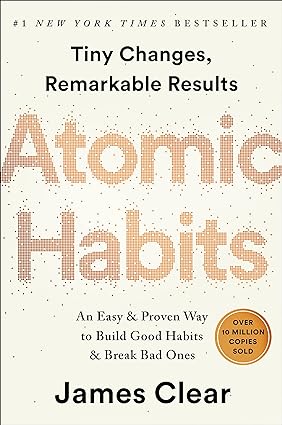
It’s been several years since I read the book. A resolute leader—I feel a bit embarrassed about this, but it is so true—is often someone who doesn’t feel like there’s a place for emotions in the workplace. “Let’s just focus on what we need to do.” They know what they know and what they don’t know.
I’m very much in that camp. If I don’t know something, I’ll put my hand up and say, “I don’t know it; let me learn. I’m very hungry to learn.” But when you know what you know, don’t get in your way.
Integrative is the diametrically opposed, which is collaborating with the team. Even if you know the answer, just to get that buy-in from the team, get that ownership, and get that different perspective, it’s something that you may not have considered. How things might impact a customer they’ve been dealing with or other team members.
The resolute leader sits on a very high D in terms of DiSC. The funny thing is that when I had done that test, I went and flick that test with all the other leaders in my business; every single other person was a resolute leader.
One downside is that you often surround yourself with very similar leadership styles. While that can make quite a lot of cohesion and push you forward in a particular direction, it leaves other people behind because you have a very stamped-out leadership style in your business. I learned about these other perspectives and made sure that when I was bringing people up through the ranks, I was looking for diversity in styles and approaches to engaging with people. That became quite important over the years.
What have you done to up-level in recent times? You got great insight years ago from doing the DiSC assessment, reading the book, and everything else. There are so many assessments out there. There are so many ways that we can look inside and self-examine. What have you done recently?

In terms of what I’ve done recently, it’s a couple of things. I read Traction recently, which was particularly helpful in simplifying how I do things in business. But I’m not much of a book guy. I’m a “Give me a YouTube summary that is 20 or 30 minutes long,” and I’d much rather look at that.
One of the things I looked into most recently was Atomic Habits. A lot of elements from Atomic Habits, we’ve woven in through one of the programs I run with SYSTEMology because I found systemizing your business is not this one great big effort. It’s more about building muscle and habits so your business can slowly get systemized over time, ideally without the business owner or leadership being involved too much.
Atomic Habits to me, actually, “This is me using this. I’ll watch YouTube for a quick summary rather than reading the book.” I made a mistake interpreting one of the models because I was just skim-reading it but listening to it three times in the background. I came up with my iteration. Are you familiar with Atomic Habits at all?
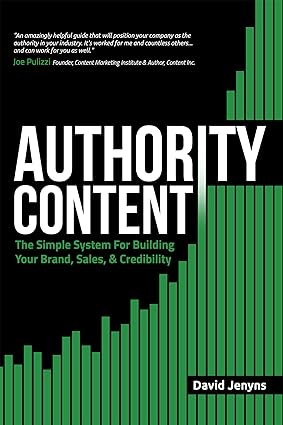
Yup, I am. Ironically or serendipitously, I had a conversation about Atomic Habits two hours ago when I was interviewing Dr. Sabba Quidwai. She brought that book up and then shared her favorite teaching point or concept from the books. There are no coincidences. How funny that out of all the business books in the world, we were just talking about Atomic Habits.
The value of disappointment is one of the absolute truths in terms of business that everyone expects everything to go on a linear journey, which it doesn’t. Most people who have been in business for at least a year or two understand that, and there’s more like the exponential or the parabolic curve.
When I read that, I don’t think it’s quite right. When people are starting to implement a new project, in a business sense, there’s often regression. You often go down below the axis before and then uptick afterward because you have to break from the norm.
There are many opportunity costs, from having to focus on something completely different and getting way outside your comfort zone. You’re probably working less efficiently and effectively than you might have been. You have to go through that journey before you can even get back up to breakeven, before you even consider moving on to gaining improvement from this new technique, this new approach that you’re trying to apply in your life.
What would be an example where you have applied your variation on this teaching point in your life or business and got a great result?
I use this example within the program itself. It just applies to the program as a whole in terms of the iterative way that we’ve seen the early approaches of how we’ve run the program and how we’re running it these days.
The value of disappointment is one of the absolute truths in business that everyone expects everything to go on a linear journey, which it doesn’t.
The original version was David Jenyns running it, and it was only three months long, and we were trying to squeeze in this content. Over time, we were having okay results. But we noticed that trying to get a business owner to implement something in literally three months wasn’t necessarily that pragmatic, so we stretched the content out. We moved to fortnightly sessions rather than weekly sessions and things like that. And we went through a new version of that.
While we’re getting okay results, in terms of the continuity of results between the different participants, I don’t think it was there. In any training program, you’ll often have people drop off. You’ll investigate and try to learn why. This was very much through that bottom. You’re trying to work out what’s working and not working for people so we can create a future iteration.
The most recent iteration is where we have the content because we’re just going too fast. That approach of seeing what’s working and what’s not, and being inquisitive and asking people, as I said, we’ve doubled the length of the program since the first iteration. We have the content that we tried to squeeze in there. We just go a lot slower.
It comes back to building the habit, building the muscle type of thing that is so much more intrinsic once they’re getting to the end of their program. You can see that they’ve already started to take it and run with it to implement it in different areas of their business. It’s invigorating to see people who are towards the end of the program and they’ve skipped ahead. They’re seeking advice on how they can apply to different areas and things like that.
When you’re going through that initial curve, you think everything’s broken, wrong, and nothing’s working for you. And just understanding that it’s a process was really helpful because otherwise, you could give up halfway through before you get back to that breakeven and think, “Oh, well, this isn’t work. I need to do something completely different as opposed to something iteratively different.”
It’s progress, not perfection. What thing sticks out in your mind as “This is profound or impactful for these business owners to go through this exercise or learn this new approach or process?” What is it that, across the board, these cohort participants are hitting it out of the park?
The most important thing is to develop version one of your processes.
Honestly, one of the fundamental things that I learned from David Jenyns, and I don’t know if he’s got it from somewhere else or whether it’s one of the core parts of the formula of SYSTEMology, but the most important thing is to develop version one of your processes. Too often in business, when you’re starting to scale up your business and building more teams, the go-to thing is to optimize. I’m as guilty as that as the next person.
When you look at what will truly make the difference in a business—I like to say a difference versus the difference—something that makes the difference is when you can build out the skeleton of your business with all the bones, arms, and legs. If you’re just thinking about how some people go about their business, in terms of a skeleton reference, they might have one beefy arm that’s maybe the marketing department working for them quite well.
The other arm is just a bare skeleton without any skin on it. A leg might be missing and things like that because they’ve got some parts of the business working well and dialed in, other elements that aren’t their sweet spot, and maybe aren’t their passion. They haven’t worked out at least their formula for how they do the basics because it’s just not an area of interest for them.
They’re still focused on one thing. It’s working well, and this other area just gets left by the wayside. By not just working out their baseline in terms of getting just that version one of how they do things, the team is usually left to their own devices, and everything’s made up as they go.
The problem with that is lots of things don’t need to be made up as you go because you’ve been established in business for a while. You work out your routine in working with certain people and customers. Then, you might have two, three, five, or eight different ways of working with a type of customer. But when you don’t have that baseline, it may be a thousand different ways because you haven’t worked out one of the common threads. Missing that version one means that nothing ever truly sticks in business.
Sometimes, significant life events can serve as catalysts for personal and business growth. Embrace change and be open to new ideas and approaches. Share on XLet me give you a “hypothetical” example. I’ve got a beefy arm with marketing. I do a pretty good job, if I do say so myself, with my personal brand and with the SEO agency’s brand, but the missing leg or the skeletal arm is financial control. I don’t love looking at the profit and loss, balance sheet, financial projections, cash flow, etc., and that’s not very good. That’s a version zero, no process. There’s a completely missing limb there.
I’m curious if you’re my coach here advising me on how to heal that trauma or what is preventing me from looking at spreadsheets and taking some actions regarding financial controls and setting up processes. We do have accounting software. We have a bookkeeper who manages the invoicing and paying the bills, the contractors, staff, etc. That’s all handled, but I’m blissfully ignorant. I know that’s not very responsible of me, so fix me.
Because you’ve got a really good marketing engineer business, the analytical side is something you enjoy and enjoy looking at. Is that right?
Well, in some ways. I don’t love going into Google Analytics. But Google Search Console, I use that all the time. I use Ahrefs, Semrush, Moz, and SparkToro. I’m a power user with these different tools.
If you think about how you’ve got that up your sleeve in terms of how you use those different tools to assess how things are working, what’s working, and what’s not working in the marketing side of your business. Going down the same path for the financial side of things for your business would be great as well.
If you think about something like the Traction I mentioned earlier, I love how Traction simplifies things to a scorecard. It’s very much the same in SYSTEMology. What are the different things that if you were to simply assign a very basic number to them, you could assess that against what your budgeted number is against each month and bring it into a scorecard type of view, something probably similar to what you’d use with your marketing department, such that you at least rather than having to look at profit and loss, balance sheets, and things like that, you just simplify it down to a really core set of numbers.
You’re probably familiar with things like Profit First. Profit First is heavily aligned with something like SYSTEMology because Profit First is a system. It is a system for how you do good financial control to make sure that a business owner is extracting profit from the business religiously over time.
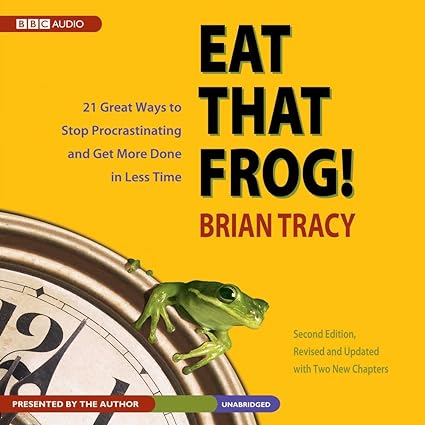
By the way, I did have Mike Michalowicz on my other podcast. He is awesome. I love his book Profit First. I listened to it. It was an awesome lesson. He is so funny. He just goes off-script so much in his audiobook.
His book fixed this next. I haven’t read it, but saw him present at a conference. That was his hierarchy of needs for a business. If you haven’t looked at it, it’s worthwhile watching, reading, and understanding what’s needed at different stages of the business.
In terms of how you could get control of finance, the thing is, if you don’t like it or if you even suck at it, understanding the whole term of Dan Sullivan’s Who Not How, taking that approach, inviting someone that is a trusted consultant come in and just sort that area of the business out to help you get what those version one systems are. There’s version zero to get what version one looks like.
It doesn’t need to be complete, and the full gamut in terms of every single element has to do with your financial control. If you just spoke with someone who was an expert in that area and goes, “What are the top five things I should be paying attention to for my type of business to work out what some budgeting type of figures should be?” and just bring it back to the simplicity of a couple of numbers that you need to monitor each month.
Yeah, because perfect is the enemy of done.
Absolutely.
There’s probably some childhood trauma or something. I haven’t figured that out yet.
The money mindset. I thought that my money mindset was okay. A good friend is a Profit First professional, so I said, “I’m quite close in terms of that frame while I’m with them.”
Through adversity, you can discover the profound power of intentional time investment. Prioritize what fills and energizes you. Share on XThe slippery slope for anyone in the consulting space is time for money and trying to avoid getting commoditized into time for money. He said, “You’ve got a terrible money mindset and need to work on that.” Money mindset is very much at the core of that stuff.
Speaking of childhood, you alluded to how you learned about being a resolute leader. It ties into your childhood.
It was in the book many years ago, a decade since I read it. It talks about the ways that you probably were when you were a child. I’ve done a few things over time with different personal development programs and things like that. One of the core things that has come up repeatedly, and I know it stemmed from different elements of my childhood, is the need to know why.
I now understand that. I’m in my 40s now. I now have a real appreciation for the need to know why it has been a huge, strong suit of mine that I could use to create an advantage for myself in my business and life. However, it has also been one of the biggest barriers to moving fast.
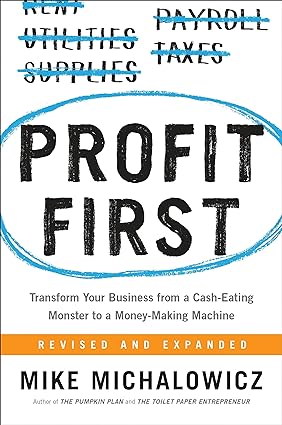
It is a huge strength in many areas because it gives me this beautiful depth of understanding of things and how everything gets pieced together. But on the flip side, if you have a huge need to know why, like I’ve had, and you’ve got a team, it can often look a lot like micromanaging or that you’re not truly trusting your team because you’re inquisitive about how they’re doing things because of your need to know why, that’s not their problem, it’s your problem.
Knowing when to lean into it and when not to lean and go, “No, I don’t need to know why.” Learning to differentiate between those two opportunities has been huge in understanding how to manage that skill set better.
You might get misconstrued as needing to know why, as you have a fixed mindset. That could be a fixed mindset. Like, “He’s slow to move. He’s not making decisions here. He keeps grilling me on, like needing to know more and more information. He feels stuck in his ways.” That could be something to look at.
Are you familiar with Carol Dweck? She was an academic in the 1960s. I learned about what creates a growth mindset from a guy called James Castrission. James Castrission holds a couple of World Records.
He kayaked with his best mate from Australia to New Zealand for over two months. And not long after, they hiked from the edge of Antarctica to the center and back again. Those trips were unassisted, and that last one took him three months.
He knows a thing or two about growth mindset. He simplified it down to a very simple triangle: focus, physiology, and language. He was beautifully able to articulate how these related to him.
For example, on that kayaking trip, they were talking about focus. They’ve had a couple of opportunities when they were out in the middle of the ocean halfway between both countries, that people would come near them and offer them assistance in terms of extra food and things like that.

Their focus was to make that trip unassisted. Because they were both very resolved that we would do this unassisted, it was very easy for them to say, “No, don’t come near us. We’re doing this unassisted. Thank you.” Because even rafting up next to the boat could be perceived as getting assistance.
Being clear on what you’re focused on is at the core of it. Then he was talking about his physiology. He said, “I know nothing about this, but in terms of kayaking, there’s a technique. It’s about having low shoulders.” He said that whenever things were going bad, they would just go. They noticed they didn’t apply this approach or had low shoulders, so they were less effective and efficient.
The other one was language. When they were getting tired because they were paddling 16 hours a day, he said they’d start getting narky at each other. They’d start making off-the-cuff comments, being slightly mean to each other.
Use what you’re already doing in life to take advantage of those moments when you are primed.
Considering what that was like, he still stands behind the fact it was 99% preparation for both trips, which is saying something considering what the execution was like. He said, ‘Getting a really firm grasp on this growth mindset from Carol Dweck’s work and understanding how to make sure that we maintain our focus, language, and physiology, that those are core elements to how they had a successful journey.” I found that super applicable.
I’ve got kids—a seven and a nine-year-old. When my nine-year-old loses a basketball game, just getting him to focus on, “Let’s use a language like this rather than a language like that.” It’s super helpful in a variety of different areas of life.
If you were to apply what you learned about language and all this to my situation that we just discussed, or I just wing it in terms of the financial controls of the business, what would that look like with that triangle?
Honestly, I’m not sure how physiology would apply to how you’re dealing with your money. But if you were to think about your focus, we’re talking about a money mindset, which might relate to something from childhood, so insert a focus that works for you. We probably have some very structured language around it. That could be, “I’m going to be profitable and achieve financial freedom.” I don’t know what it might be.
I’m very big on SMART objectives (Specific, Measurable, Achievable, Relevant, and Timebound). I make sure it has those elements around it to lock down the focus side of things, and then it will probably be a bunch of changes or language around the finances. I’m that way and not quite, maybe so far. The pendulum has swung quite that far in terms of where you’re at with your vibe around the financial side of things.
If you’re asking people in your life if you talk about money, you may have a lot of negativity in your language. It just self-reinforces to yourself that existing state of mind.
I don’t know if I’m negative about it; I just wing it. I don’t know the most expensive tool or resource in the business. I don’t know which clients are most profitable or which are not. That’s dangerous and a little irresponsible. You mentioned something about physiology, and you don’t know if that’s applicable.
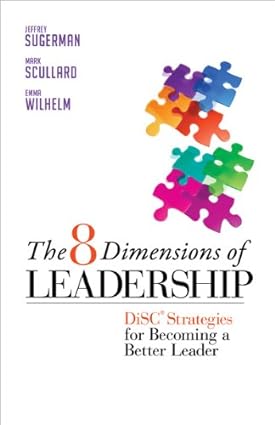
What just popped into my mind is if I do something small but meaningful in this area of setting up financial controls, some accountability, and more oversight and insight into what’s going on, and I just do it on a high, when I’m really in a good mood, or I’ve just come back from the gym, I’ve got the endorphins going or something. If I carve out times in the day or during the week, it’s almost guaranteed that I’m going to be in a really good place physiologically, like after a gym workout. That could be a way to hack the system.
Absolutely. Use what you’re already doing in life to take advantage of those moments when you are primed. I’m a big fan of the approach of eating the frog, but that doesn’t work.
Brian Tracy. I love his book Eat That Frog!
But it doesn’t always work. That’s a great example of paying attention to what your physiology is like when you can take on things you don’t enjoy so much. You are suitably primed, such that you have that existing enthusiasm, so you can just smash through it and get it done.
Even doing that over time could change that mindset that, “This isn’t so bad. I’m enjoying it. I found this out today. I can leverage that in my marketing,” and link it back to other things that you value more in terms of your business in your life.
You’d be talking about personal development in a marketing podcast, but here we are.
I’m a huge fan of the concept of business only growing as fast as its business owner. It’s what I’ve seen time and time again with different people I’ve worked with over the years. Some of my early clients are doing amazingly well, and I’m super proud of their achievements. Some of them just held back in different areas.
It’s not like I was pivotal to the success of some of the early companies I worked with because they were well-established and successful before. But with some of these businesses, there are just elements of how they are in their day and life. It’s only one small factor, but it obviously holds them back.
I’m a huge fan of the concept of business only growing as fast as its business owner. It’s what I’ve repeatedly seen with different people I’ve worked with.
It can often come down to things like relationships and mindset, whether relationships with a team, relationships with people in their life, or maybe relationships with money. If they’ve always envisaged that they’re going to retire at 60 and have to work hard, that’s a really hard mindset to shift. You don’t need to retire at 60; you could retire at 50.
When I talked with people about trying to stop working so much in their business, I asked them, “What’s a challenging but achievable duration of time from today for you to get out of the day-to-day of your business?” I often work with people who say, “Probably 6-12 months.”
Lots of effort. But if you’re fixed on it, like, “I’m focused on getting that result,” it’s probably achievable within that 12 months. Other people I’ve spoken to have said 15-20 years. A lot is going on there for someone to say. For me to step back from the day-to-day, it will take 15-20 years of constant effort to get that as a result.
Personal development is a common thread that is a catalyst for change within people’s businesses once they get that result.
I was talking with a partner; he runs a coaching company specifically for builders. In terms of where people are going, we were looking at his client avatar. He realized that the people he enjoys working with the most, those who latch on to the s that he imparts and run with it and apply it, have gone through a catalytic event recently in their life, particularly around personal relationships.
They’ve drawn a line in the sand and gone, “I can’t do that anymore. I need to do it differently.” That’s enough of a catalyst for them to change their mindset and be open to new ideas to move forward differently.
When you’re talking about the six months versus the 20 years, a quote that came to my mind is, “Whether you think you can or you think you can’t,” by Henry Ford.
Yeah, it’s super applicable.
You’ve done some personal development, seminars, courses, etc. What something that sticks out for you that you did that was profound in terms of personal development?
The first thing I ever did that started me on that journey was probably close to 15 years ago. I did something called The Landmark Forum. I googled a lot about it.
The thing is, I had my graphic designer at the time, who was also a reasonably good friend. Over the last six months, I’d seen a dramatic change in how he did stuff. Everyone had the same brush, but he was a bit of a typical graphic designer.
He was an amazing designer, but how he ran his business was terrible. I wouldn’t get an invoice for 6 or 12 months, and then I’d get 10 or 15 at a time. If I said, “Can I grab this original file because I need to do this with this signage, he’d be going through hard drive after hard drive and trying to find stuff. He just wasn’t very organizationally minded.
Within a six-month window, he just became accountable. He even apologized when he dropped the ball. That was not the way he typically did stuff. He didn’t hold himself to account. He had himself to account, and I’m like, “Oh, my gosh, this is not like him. It was great because it changed the conversation. We could have been more pragmatic with each other.”
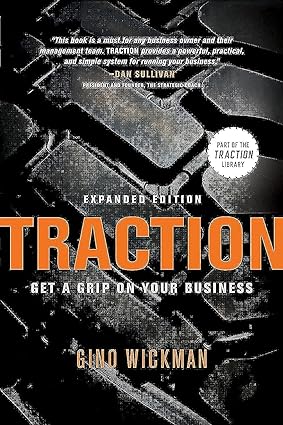
Anyway, I went into this program. It blends many things from Dale Carnegie, Scientology, different religions, and Buddhism. It’s a melting pot. Although many people have bad opinions about it, I have some great value for myself.
This sounds fairly bold, but it made the difference between me being a single guy and now being married with kids. I had a lot of a mindset about my past with how my parents were in their relationship because they divorced when I was relatively young and at an age that would have been quite impactful for me.
You have these things, the ‘why.’ I was talking about before the need to know why. From what I recall, it probably stemmed from maybe a week or two after my folks split up when I was about 8 or 10. My mum’s friend came up to me and said, “You know it’s not your fault.” I was young, but I’m like, “Why would I be? It’s between them.”
It made me feel a bit dumb because she must be placating me. Therefore, there was something. I never thought much of it at the time. But there’s a bit of a common thread with all these little things, and that program helped me understand many things that happened when I was younger that just locked in.
By the time I finished that program, I had a very good understanding of how I could switch on and off different things that were attributes of mine. That was particularly powerful because, as I said, you can lean into knowing why because it’s really good to have this technical understanding. But other times, it’s like, “No, you’ve got this. Do that, and let me know when you finish. Give me a yell if you need help.”
Being able to switch back and forth like that was quite pivotal. It changed the way I ran my team after that point. I’m sure I became a hell of a lot better boss as well after that point. That probably opened my mind to the fact that things are out there, and I need to be more perceptive.
You can lean into knowing why because it’s really good to have this technical understanding.
There’s a coach in Australia called Kerwin Rae, and he’s got a lot of very, daresay, alternative perspectives on things via listening to one of his podcasts. I listened to an interview with Dr. John Demartini, which blew my mind.
He was a guest on the podcast, by the way.
Yeah. He’s amazing in terms of the insights and this depth of understanding about how everything works together. Humans have this great way of overcomplicating things, and hearing Demartini explain what we know with science, what things are, and how they interrelate.
One of the most profound things was hearing him articulate how a feeling occurs in your brain, and then you feel it on your skin. He was talking about the chemical reactions, the electrical pulse pulses, and this chemical gets released, making your skin expand or contract. It was quite amazing.
I am just listening to that and understanding that there is that depth of knowledge, that there are other things that are just outside of what is commonly known. It’s all too common that people try to make meaning behind things and say, “Oh, I felt this way because of this.” “No, you felt that way because it was a chemical reaction in your body, and you made it mean this.” I found that impactful in my life.
Yeah, we’re meaning-makers. We just make stuff up. I’m curious to hear how you ran your team before going through Landmark and then after. What was the big, profound shift?

It does come centrally back to that need to know why and even that resolute leadership, which I probably did that test around a similar time to doing on a journey of personal development.
When I hired people in the early days, I intentionally didn’t hire A players. I don’t necessarily know why. But when I was recruiting, I would recruit people I thought had the appropriate skill level for their role but not hire. I don’t know whether it was because I didn’t want to be challenged by other people in terms of different ideas or whether I wanted to make sure I just plugged that hole in business to make sure that it was set and forgotten. I could focus on other things, as opposed to having to worry about people wanting to be challenged more and to come up through the ranks in the business.
That was a very common theme for how I ran the business in the earlier days. Whereas in the last years, there was a motel that I was running. I was often hiring university students who were probably in their first year. I would recruit them very much at that age. You’re hiring for attitude and training for skills, which is not particularly new these days.
There is that depth of knowledge that other things are just outside of what is commonly known.
The relationship I end up having with those people is that I will impart anything I can to you relevant to the job and beyond and use that as the incentive for them to do better work. The way we had this collaborative approach to them working for me, one of the more senior people working with me for several years would be asking me questions about stuff that had no relationship to his job. It was just about business in general, but that was our agreement.
I would spend the time imparting that knowledge to him, so I commit to him fully in terms of that side of things, and he would commit to the business that he will go above and beyond. It was just this great synergy for how we would work together, such that it was a triple win. It was a win for me; there was a win for the business, and it was a win for him as well.
It always created the exit surveys I had from people who entered the business in that era. It probably would have been very different from the early exit survey school that didn’t exit surveys back in the original days, probably because I knew I didn’t want to see it. That approach to running the business was dramatically different from the way I built my team.
That also brought a lot of loyalty amongst your team members.
Absolutely. When COVID-19 happened, COVID the accommodation business kicked in just at the beginning of our peak season in Australia. It just completely turned the business off. That’s probably why we don’t like it. Saying it was wiped out was one thing, but it stopped dead in its tracks.
We were having one or maybe two customers stay a night, versus it being a midsize business, and only having one or two people stay, there wasn’t even any need for anything. When things started to just dribble through and pick up a little bit, I had a team working from home, sitting in their bed with their laptop on their knees with their earphones on, running the reception of business from their bed because that was what they could do at the time, and seeing everyone rally together like that and do whatever they need to do to be able to help out.
You’re hiring for attitude and training for skills.
There was a stage where they’d be detached from government support come through later on, but had people offering to work for free because they just wanted to help. That was moving. Some of this was for people who had only been with us for six months. They’re like, “We just want to help out. We just want to help you get through.” That was touching.
How does that way of being in business jive or not jive with the old adage, “Hire slow, fire fast?”
I don’t even fire fast anymore. I don’t believe in the fire fast at all. I was going back to one of the examples of two individuals who came through the business when I was leaning into that approach to running the business. Myself and my assistant manager and I agreed that we were going to pick this individual. She was 19 years old, and she was starting a law degree.
After a few months, he came to me and said, “She’s not getting it. We just need to get rid of her.” I reminded him about why we hired her. There are these different attributes that we saw. She was speaking up, and she was able to articulate things clearly. I said, “You need to change your training style to adapt to her learning style. You can’t expect her to adapt her learning style to your training style.”
About a week and a half later, he came to me and said, “Oh, my gosh, she gets it every time now. We do this, and she gets it. She’s picking things up so fast. She’s picking things up faster than anyone I’ve ever trained before.” Because he was able to alter how he communicated information and gave her the opportunity, some people like to write things down, and some people just want to hear it. And that’s okay. There are oral, aural, and kinesthetic types of learners.
Empower your team. Generously share your knowledge, foster a culture of continuous improvement, and achieve success through collaboration. Share on XIt was probably my year five science teacher who insisted everyone wrote everything she said. It was a very slow lesson because she had that kinesthetic style that she had to write things down, but that only works for that type of learner. Some people say she was a great teacher because she ensured you did this. I was more of an aural or a kinesthetic learner. It just didn’t work for me.
With the team that was able to adapt and apply these new approaches, it meant that I do hire slowly, but I don’t fire fast. I’ve got an assistant at the moment who may watch this later on. She’s quite new to the business. She’s only worked in family businesses before, so this is her first real-world job. And I know that, so it is my responsibility.
I hired her for some intrinsic attributes you couldn’t fake in an interview. I hired her, knowing that she didn’t have that experience. It’s on my shoulders that I hired someone with those attributes and a lack of skill in that area, knowing that it will be a journey to go through. It’s on my shoulders to be responsible for making sure that she gets what she needs and guidance.
What attributes stuck out for you, like, “Okay, she’s a must hire.”
With the team that was able to adapt and apply these new approaches, it meant that I do hire slowly, but I don’t fire fast.
One of the main things that came up was when I was asking her about the learnings from working in two family businesses that she would bring towards working in any business in the future. When I asked that question the first time, I garbled the question because I changed partway through. She said, “Sorry, can you ask that again in a different way?”
I’m double her age. She’s from an Asian background, and I’m a white guy. She’s from a developing country. There’s a lot of power differential. For someone to have the confidence to say, “Hey, I’m not quite sure,” rather than trying to fake and make up the question, that was quite good.
When I correctly asked the question and was concise with the question, she said, “I’m not sure how to say it, but it’s to invest. When you’re running a business, the things that you do today are making a benefit in a year or two’s time. If you just focus on what will work for you in the short term, you will miss out on what you need to do to impact the long term.” She’s in her early 20s. For her to have that foresight, it’s like, “Okay, she sees the forest from the trees.”
That’s awesome. Very cool. I know we’re running out of time here. I will end this with a strange question I don’t normally ask because it’s certainly not on a marketing show. I don’t know, but I’m being nudged to do so. What was your darkest day, and how did that shape you into who you are today?
My darkest day and how it shaped me is probably quite recent. It was having to fire all 15 team members in the motel, that business in COVID because we planned how we’re going to get through, the structure we’re going to take, and how we’re going to distribute workloads and things like that. It just obviously changed so rapidly.
I had to let go of people who’d been there for two decades, and I hadn’t even been there that long, but also people who had only been with me six months that I knew were this fresh new blood, that were the new iteration of the business, that I knew were going to be with me for another three, five years, and take it into places that I didn’t even know where it was going to go.
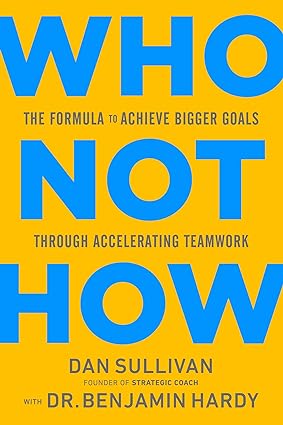
The business was dying for a period of time. That is completely resetting how I would do what I would do for the next year or two because I was playing in the consulting space, but I wasn’t building my business. I was still balancing myself between the two areas. Doing that and wallowing in my self-pity for a while during the depths of COVID, going, “What am I going to do?”
When things started to come back, I realized that I needed to commit to what I was doing. I rebuilt the motel business in a different way. We changed how we were staffing the business, but I also went gung ho into my consulting business.
I think it also dramatically recalibrated how I wanted to spend my time in my life. COVID was a great opportunity to see where we’re spending our time and make sure that we’re doing things that fill our bucket. I taught my daughter to ride a private bike during COVID-19 and switched gears when my life started to return to normal.
I didn’t want to lose that ability to have time and things like that. I now work from home. I could have always worked from home, but now I do it by choice. Going through that crisis and going through that super low period of time, I thought I was resilient before, but I have a whole new caliber of resilience these days.
That’s amazing. Thank you for sharing and just being so open about all of this. If our listener wants to work with you and learn from you, where do we send them?
To my website, biztechguru.com is the easiest way. I’m very visible in the SYSTEMology world as well. I generally work with people. As long as they’re similar to the Australian timezone, that’s okay. That is the best way.
Awesome. This was fantastic. You’re an inspiring guy, so thank you for coming on the show and sharing your wisdom and experience with us.
You’re welcome. Thanks for the opportunity.
Yeah, and thank you, listener. Get out there, make it a better world, and we’ll catch you in the next episode. I’m your host, Stephan Spencer, signing off.
Important Links
Connect with James Brown
Apps and Tools
Books
Businesses/Organizations
People
Previous Marketing Speak Episodes
Previous Get Yourself Optimized Episode
YouTube Videos
Your Checklist of Actions to Take










About James Brown
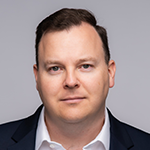
James Brown is a seasoned business consultant with over 20 years of experience helping organizations implement systems and processes to improve team productivity, efficiency, and overall business performance. James has worked with a diverse range of businesses in various industries, including manufacturing, construction, professional services and tourism. He has developed a deep understanding of the challenges faced by small businesses.
In 2018, James founded BizTech Guru, a consulting business dedicated to helping business owners achieve greater time freedom and business success. His approach heavily draws on his expertise in SYSTEMology, a revolutionary methodology for systemizing businesses. In recent years, James has partnered with SYSTEMology to run their group training programs. He has now helped hundreds of people from around the world to implement this simple yet powerful methodology.
James’ broad industry background and deep understanding of business challenges allows him to offer innovative and effective solutions to help businesses simplify their operations and maximize team ownership.







Leave a Reply